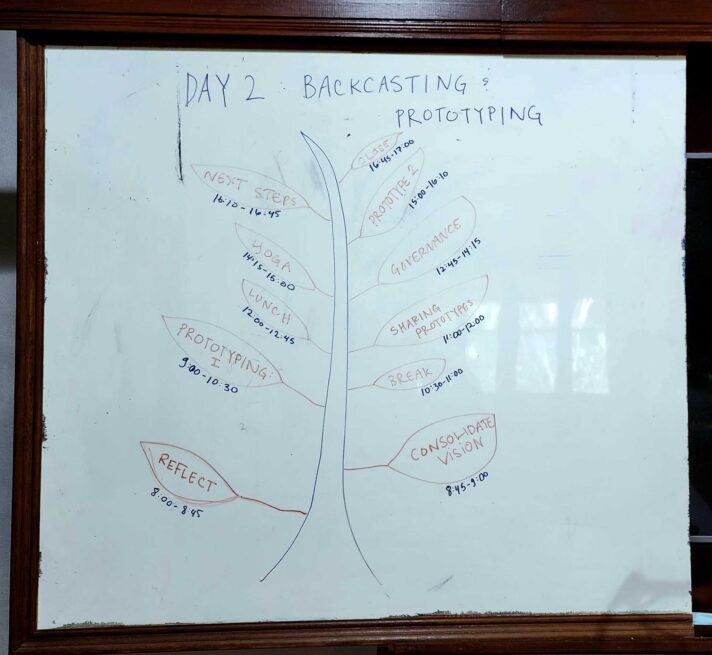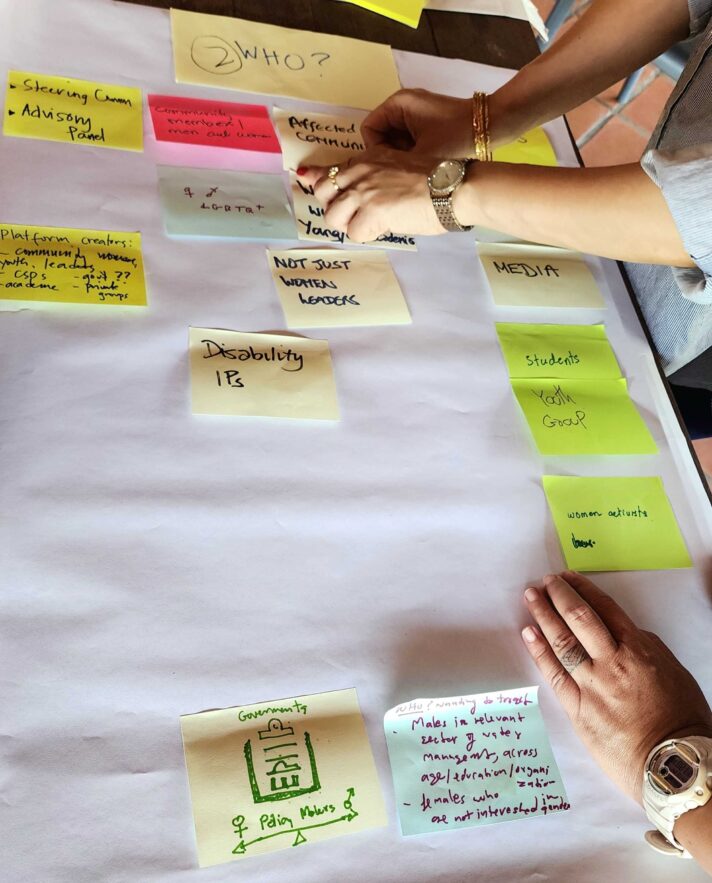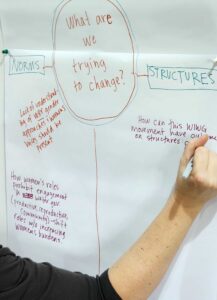Co-creating a Safe Space : WIWG Steering Committee Workshop, 23-24 February 2023
For two full days, on 23 and 24 February, 12 Steering Committee members from six countries across Asia convened in Chiang Mai, Thailand, to begin the challenging process of co-creating a safe-space platform for women to connect, share, and learn from one another for water governance. Representing diverse NGOs and INGOs across the region, these women brought together unique perspectives and experiences, and through hands-on creative processes and open deliberation, were able to determine a path forward for the future of this platform.
The group began by establishing principles to support the co-creation processes, and in doing so established a framework for how to work together and support one another. Even the word ‘platform’ is open to interpretation, and it was determined that any collaborative learning system that supported the legitimate, credible amplification of women’s voices requires both on-line and off-line mechanisms to be successful. A platform could be a stage (amplification), an area where people embark and disembark from a train (movement), or an on-line, secure location for connection and sharing (repository).

Day 2 agenda of the workshop was co-developed by members of the Steering Committee with the support of a facilitator.
The ambitious agenda of the two-day workshop was co-developed by members of the Steering Committee with the support of a facilitator. Steering Committee members were involved in developing and leading sessions on visioning, understanding various platforms, developing platform governance, and sustainability. The committee conducted a gender analysis to support the clarification around broader transformational objectives and to identify areas of potential backlash and tension around the challenges of supporting women in water governance.
Strategic information was provided to support the understanding of the ‘technical’ side of how the platform could be put into operation – with the support of a developer who presented a solution for communities wanting to contribute to the platform in a context of no electricity, no data connectivity, no literacy or digital literacy, with minimal hardware – representing a baseline where all challenges identified through the co-design process (2021) were represented.
The group also explored, through hands-on and reflective approaches, team processes related to co-creation. Each individual in the steering committee brings her own way of working and doing, and exercises designed to help explicitly unpack different approaches to reaching consensus, delegating and ownership of tasks, leadership, and communication approaches were explored and discussed as a part of the workshop.

The Steering Committee members worked in small groups to support the building of the platform.
Building a platform will take time, commitment, and committee work

The Steering Committee members worked in small groups to support the building of the platform.
Working in small groups, the Steering Committee members embraced the complexities of what this co-creation entailed, and developed a series of outputs and commitments that set out a path to support the building of the platform through the end of 2023 by establishing ad hoc committees focused on aspects of the platform and work areas needed to drive these developments. The Steering Committee is supported by a Global Advisory Panel, who will work to support the Steering Committee to identify blind spots and make links to other related efforts and agendas. Engaging stakeholders across multi-level governance systems, from village-level to international, will require careful consideration and coordination to ensure that the envisaged ‘safe space’ is maintained in accordance with agreed-upon principles.
The Steering Committee will now continue its work remotely for the next several months, with tentative plans to reconvene in late October in-person to realign efforts for the next stages of development. The tasks ahead are complicated and daunting, but with the right level of commitment, support, and alignment the Steering Committee is able to see the next steps towards the co-creation of a multi-scalar, multi-lingual, safe space for women in water governance.
Read More:
This material is financed in part by the Swedish Program for ICT in Developing Regions (SPIDER). SPIDER is an independent centre focusing on the digitalisation of international development, bringing together actors in development to promote human centered technology for the achievement of Sustainable Development Goals (SDGs). The opinions conveyed are not necessarily shared by SPIDER.
This work was carried out with the aid of a grant from the International Development Research Centre (IDRC), Ottawa, Canada, through the D4D network which is a global research alliance that works to strengthen collaboration across a broad network of stakeholders by developing and mobilizing the knowledge needed to advance the responsible use of data to address critical development challenges across the Global South.
The views expressed herein do not necessarily represent those of IDRC and its Board of Governors. Responsibility for the contents lies exclusively with the author(s) of the material.

